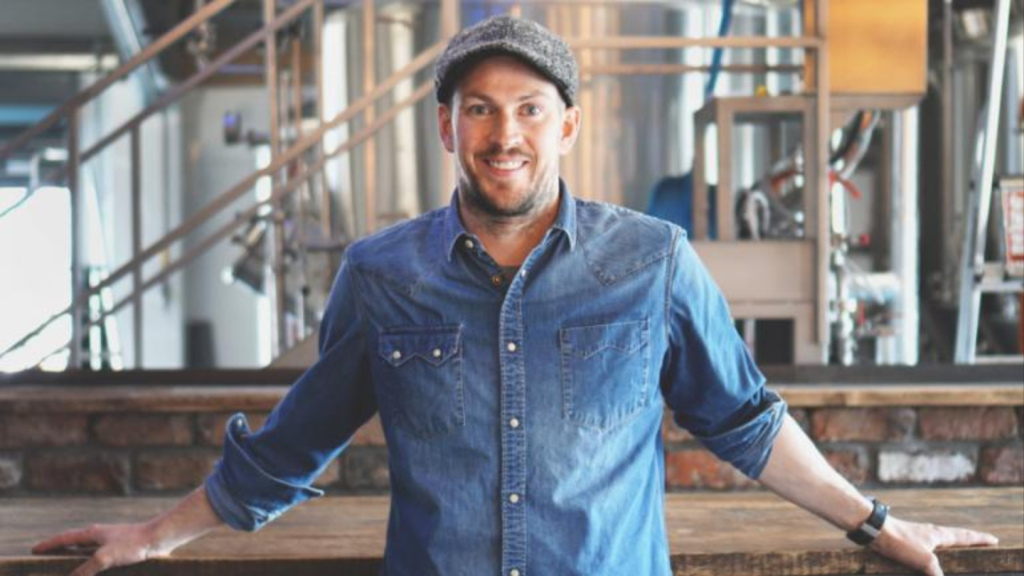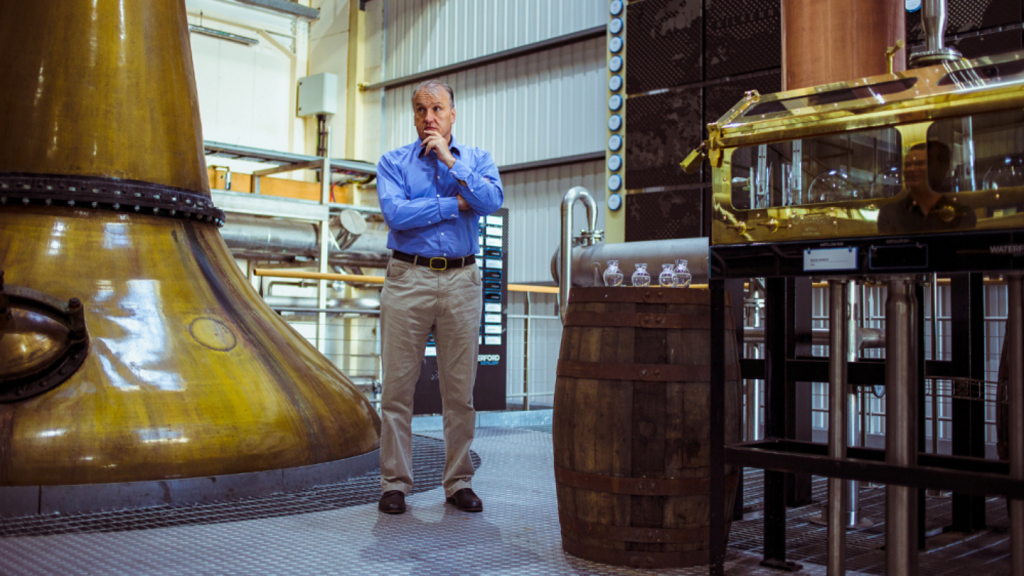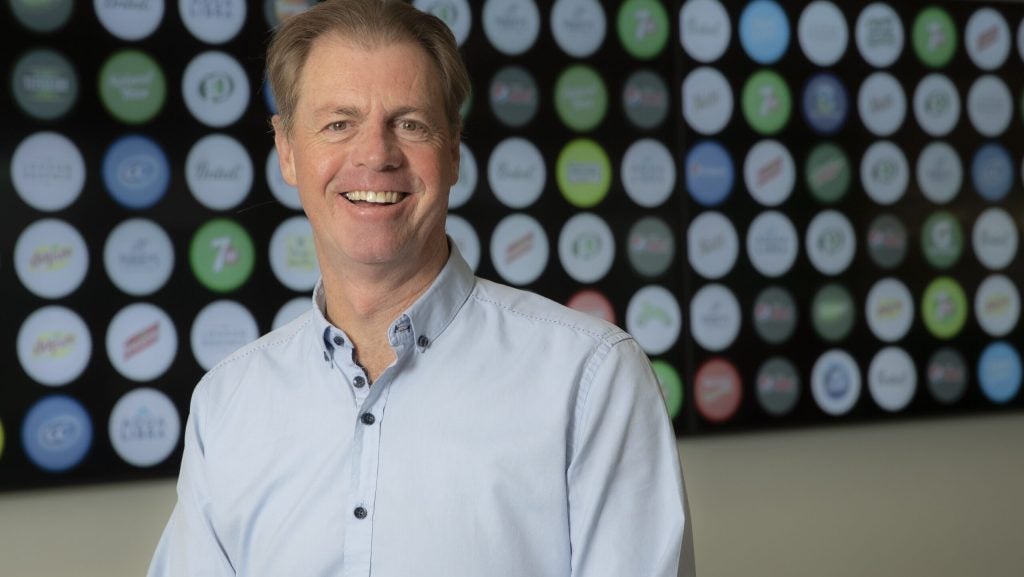
BrewDog CEO James Watt’s resignation yesterday (8 May) may not have come as a surprise to many in the industry.
After all, it is not uncommon to see the ‘start-up CEO’ move on as a business reaches a certain size and scale and Watt has reportedly been considering an IPO for several years.
David Harris, alcoholic beverages research director at GlobalData, Just Drinks‘ parent, says the move was “good and probably overdue”.
Despite astronomic success with the brand he famously started in a derelict shed in Scotland, Watt’s tenure was also plagued with controversies – from allegations the brewery operated a “culture of fear”, the loss of its B-Corp status, selling beer in Qatar amid its anti-World Cup campaign and, most recently, dropping its promise to pay UK staff the ‘real living wage’.
With Watt’s reputational issues, many see incumbent James Arrow as the “strait- laced” face investors will prefer.
“It was always going to happen,” another industry source says. “It was only a matter of time before [Watt] got moved on and they put a more finance-orientated CEO in place. It happens all the time.”
How well do you really know your competitors?
Access the most comprehensive Company Profiles on the market, powered by GlobalData. Save hours of research. Gain competitive edge.

Thank you!
Your download email will arrive shortly
Not ready to buy yet? Download a free sample
We are confident about the unique quality of our Company Profiles. However, we want you to make the most beneficial decision for your business, so we offer a free sample that you can download by submitting the below form
By GlobalDataWhat’s in a name?
For investors, the similarities between the two CEOs likely end at their name.
Onlookers have categorised James Arrow, former Boots Opticians managing director, as a “safe pair of hands”.
Arrow’s experience is varied – he has worked in healthcare, technology and food with roles in operations, e-commerce and senior leadership. Having tested the waters (he joined the company last year), he and the other James must get on well enough to work together.
Harris says: “James Arrow is far more straight and narrow and will provide the stability BrewDog needs to continue its growth.
“Unlike James Watt’s approach during his later tenure, which mostly seemed to consist of baiting the Advertising Standards Agency into public arguments and launching shock NPD, James Arrow is likely instead to double-down on BrewDog’s activities in the 0.0-abv space. I’d also expect them to explore closing some of their bars, where I think they may have over-expanded.
“This stability and cost-cutting would facilitate an IPO, something I think is likely though won’t happen immediately.”
But why not choose someone from the brewing industry – a former Anheuser-Busch InBev or Heineken exec with years of experience in the beer sector?
This, one commentator argues, could have been a step too far from Watts’ founding principles.
That said, BrewDog already associates itself with big brewers – last year it formed a joint venture with the Asia-Pacific division of AB InBev to brew beers in China and it works with Asahi in Japan. Watt reportedly owns Heineken shares himself and may have held preliminary discussions over a sale pre-pandemic.
Is an IPO the right move?
Watt is due to remain at BrewDog as self-styled ‘captain and co-founder’, which he said will involve being a part-time strategic advisor, board member and director.
Whereas the company’s equity model has relied on people buying into Watt’s vision and personal brand, stock market investors would be more focused on how that vision is driving revenue and profit.
If the company were to float, investors would look keenly at the company’s balance sheet rather than its enigmatic ‘captain’.
“If you float on the stock market, then your stocks your shares are being bought up by financial institutions largely. You’ve moved on from ‘equity for punks’,” says one commentator. “You have obligations and I don’t think that necessarily anybody’s going to care really what James Watt does or doesn’t think per se.”
Floating on the stock exchange has been seen as one motive behind the brewer’s push into the on-premise and global expansion. Some cite pressure from investors to float in order to see ROI. In 2017, TSG Consumer Partners acquired approximately 23% of the company in a $264m deal.
Analysts’ views vary about the company’s potential on the stock market.
Baker says: “With craft just starting to recover from Covid-19, this is a good time to explore an IPO.
“On-trade closures heavily impacted craft in the UK, and the following cost of living crisis also hampered performance. We can see now though that this is starting to turn around and, providing BrewDog are cautious, we are seeing a positive market once again.”
Another industry expert, who preferred not to be named, says while the beer category is still recovering from Covid, a trend for premiumisation is boosting sales value. In the next few decades, they say beer is a better investment than wine or spirits but still only give the category a neutral rating.
On BrewDog specifically, they say: “Our feeling always was this is a great company but the [valuation] expectations may be too rosy and it might be more difficult to get a position outside of UK and maintain that position in the longer term. Yes, they’ve done okay but sometimes the expectations are better than what you can actually achieve.”
Would a sale damage BrewDog’s standing?
If a larger rival were to buy the brewer down the line, there is potential for listings to suffer if, say, a supermarket or bar likes to vary its suppliers and doesn’t want to be too dependent on Heineken as well as BrewDog, one expert says.
Some kind of backlash is quite likely if the company is to be bought but news of BrewDog being sold might not bother many consumers. “It can always backfire,” one expert says. “Would I see that as a major risk? I would keep it in mind but… I don’t think consumers would mind.”
Another agrees. “I don’t actually think that the reputational issues that BrewDog had, or has continues to have, particularly impact the consumer on the streets.”
Tom Khan-Lavin, the founder of drinks marketing agency YesMore, says despite the controversies BrewDog has built a strong brand.
“Ultimately, BrewDog’s marketing played a significant role in accelerating the craft beer boom in the UK, with James Watt’s at the helm,” he says.

“BrewDog quickly grew to become recognised nationally and later internationally, via making a common enemy of ‘big beer’ from the corporate giants. Love them or loathe them, there’s a lot that BrewDog has done right.”
He adds: “For me, James Watt stepping back as CEO signifies the beginning of BrewDog’s more straight-laced and corporate future. Let’s face it, BrewDog isn’t the craft brewer it once was anymore. They’re now one of the ‘big beer’ brands they used to hate.”
It would also be an interesting move for the likes of AB InBev or Heineken to buy a company that has built its success on sticking two fingers up to the big guys.
Credibility could be questioned on both sides but, if the buyer could put aside pride, would the punters care, ultimately?
Some predict BrewDog will move away from its more antagonistic, “punk-like” anti-establishment marketing campaigns if it is to cosy up to “the establishment”. But, if it manages to keep making the same quality of beer, with its iconic labels and branding, changing CEO might not be a bad move.







